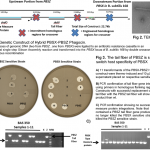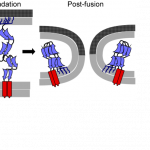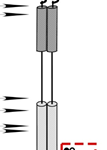PBSX is a temperate bacteriophage mutant of Bacillus subtilis 168 incapable of infection while maintaining antimicrobial characteristics with unit efficiency. PBSX-like defective prophages, called phagocins, are induced by the SOS response of various Bacillus genera and function as antimicrobial agents capable of targeting species other than the host. Disease caused by dysbiosis of the humanLearn More…
Current Research Projects
Molecular function of the prototype unimolecular spanin gp11 from phage T1
Spanins are bacteriophage lysis proteins responsible for disruption of outer membrane (OM), the final step of Gram-negative host lysis. The absence of spanins results in a terminal phenotype of fragile spherical cells. The phage T1 employs a unimolecular spanin (US) gp11 that has an N-terminal lipoylation signal and a C-terminal transmembrane domain (TMD). Upon maturationLearn More…
Lysis pathway, new lysis gene discovery and analysis
New lysis gene discovery Thousands of phage genomes have been sequenced. Using bioinformatic analysis, our lab has learned that we still don’t know the “hole” story. There are phages that are missing lysis genes. The way we search for lysis genes is limited to our understanding of known lysis proteins. Therefore, phages that are “missing”Learn More…



